

Let’s
Talk Freely
President Moon Jae-in’s
New Year’s Press Conference
Written by Park Ji-yeon Photos courtesy of Yonhap News
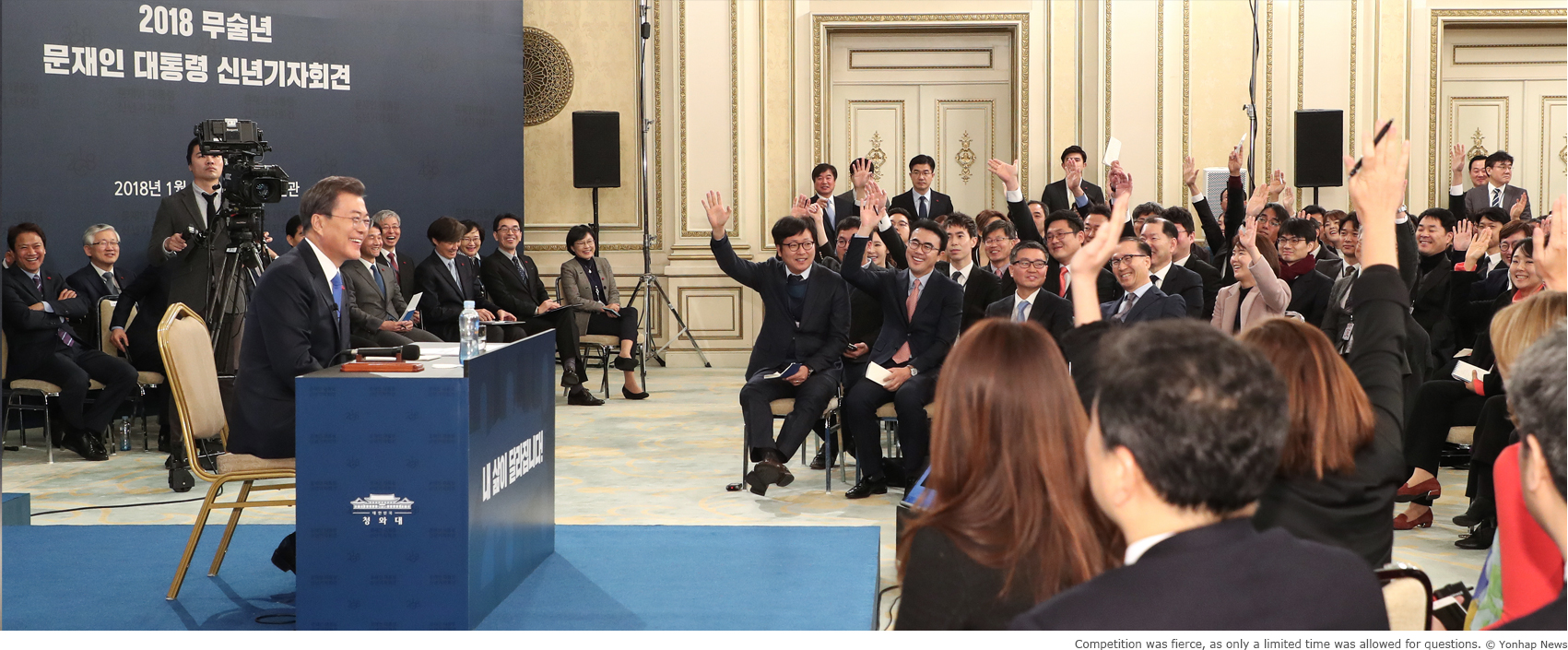
“ life worth living ”
Presidential Press
Conference With a Difference
President Moon Jae-in’s New Year's speech began with the promise to “change our lives.” The speech, which began at 10 a.m. on Jan. 10, lasted 25 minutes and showed the president’s determination to govern with a focus on the people. The promise of a “life worth living,” a life that can be different, was tied in with the hopes of the people for the new year. The president’s New Year’s speech was not different from those that came before it. The speech laid out the president’s determination in planning the year ahead, just like those given by his predecessors. The real difference came after his 25 minute speech ended.
After the president's speech, there was time for a Q&A session with the Cheong Wa Dae reporters. In prior administrations, the questions and the questioners were screened beforehand by the public relations secretary. However, not this year. President Moon selected the questioners himself and took questions that had not been screened beforehand, answering them in an impromptu manner. It was an unprecedented format for a presidential press conference in Korea, with the president taking charge of the impromptu Q&A session. His promise to “change our lives” in the speech was kept from the start, with an immediate change to the format of the press conference. It was a whole new kind of press conference. How apt for the new year!
Fierce Competition To Be Selected
As soon as the announcement of the Q&A session ended, the reporters’ hands shot into the air. The competition to be selected was fierce, this being only the second official press conference for President Moon after the first one held on the 100th day after his inauguration. One reporter raised both hands, while another held up a Pyeongchang Winter Olympics mascot doll. Although the questioners were to be selected based on whose eyes met the president’s, there was too little time to just hope that their eyes would meet, and too many reporters in the room were hoping to have their questions answered. The strategy was to just raise whatever might catch the president's eye. At one point, there was a call to refrain from yelling out questions, where journalists insisted that their eyes had met. This led to the room bursting into laughter even amid the fierce competition.
It felt foreign and awkward at first. Some reporters who would normally have been given the opportunity to speak were bypassed. This was an unfamiliar sight for the reporters in the room. However, the president was the one who had to bear the brunt of this awkwardness. He doesn't know the names or faces of the reporters, nor the news outlets for which they were writing. It must have felt like drawing lots each time he selected a reporter.
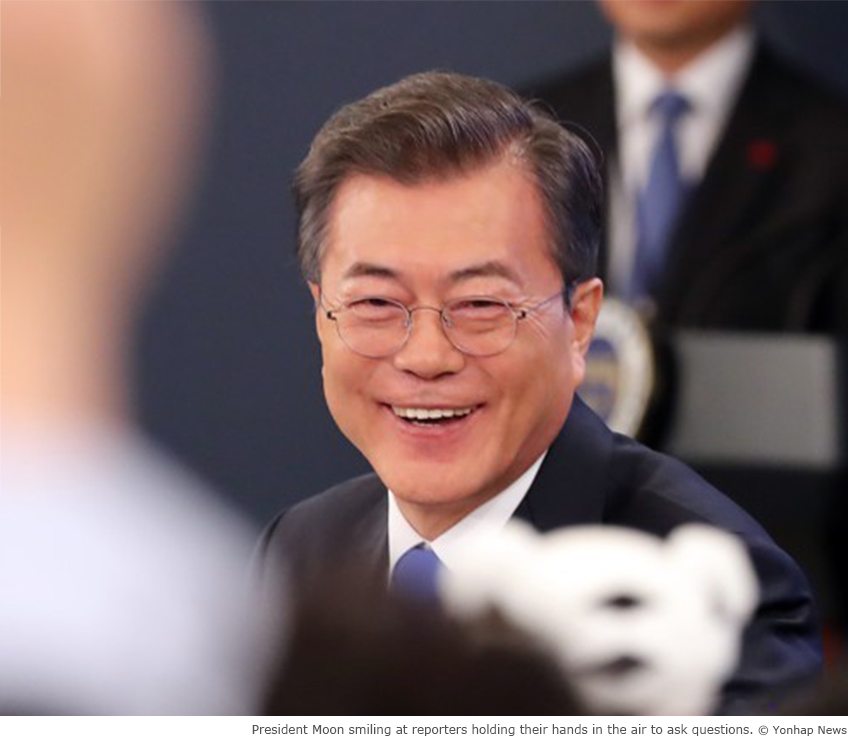
President Who Speaks Freely
With the Press
The reporters had varied responses to the impromptu Q&A format. As the questioners were selected randomly, there was some overlap in questions, and sometimes the response was simply, “This is an unexpected question that I have never thought about before.” For other questions, the microphone was handed over to an expert in the field. Some reporters may have been critical, while others may have been praising. Although the responses were varied, the important question was why President Moon chose the impromptu Q&A format for the press conference. It wasn't to confuse the reporters, but to communicate freely with the press, represented by these reporters. A press conference with designated questioners and predictable questions and answers is quite meaningless. It may be disappointing to reporters who would have had priority in the earlier formats. However, nothing can be perfect from the start. There should be order, even within freedom.
To address the concerns of not just the reporters but the general public, as well, there's room to improve in the manner and content of the questions. It's meaningful that the president began to openly communicate with a free press. The establishment of what is currently a fresh attempt at the institution of open communication with the press relies on not just the efforts of Cheong Wa Dae, but also on help from the reporters.
Other Articles

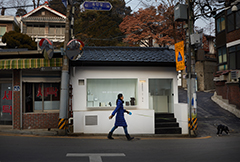
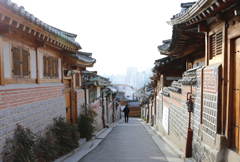
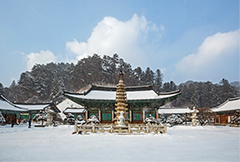
Odaesan Mountain,
Pyeongchang’s Treasure
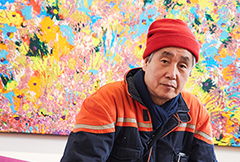
Hooked on Hangeul
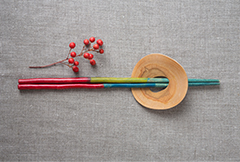
Designed To Be ‘Held’
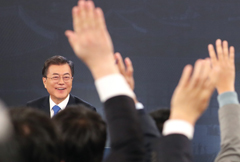
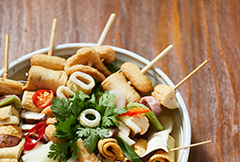
Eomuk Fishcakes
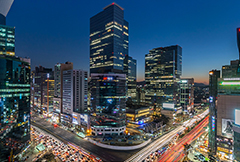
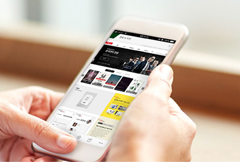
With Culture N Tickets
Application of subscription
Sign upThe event winners
Go






